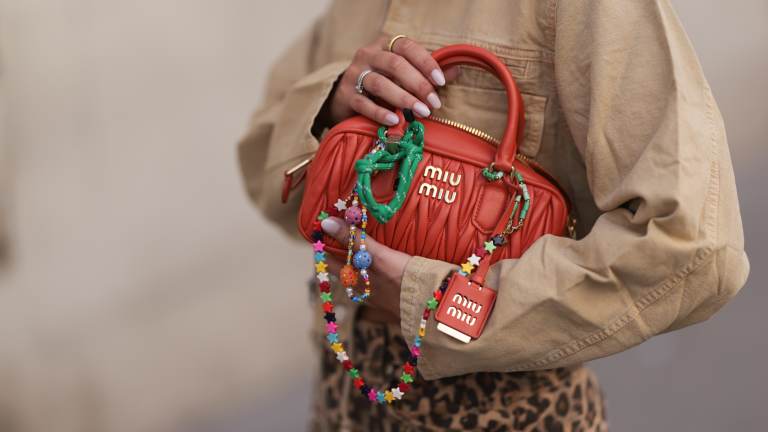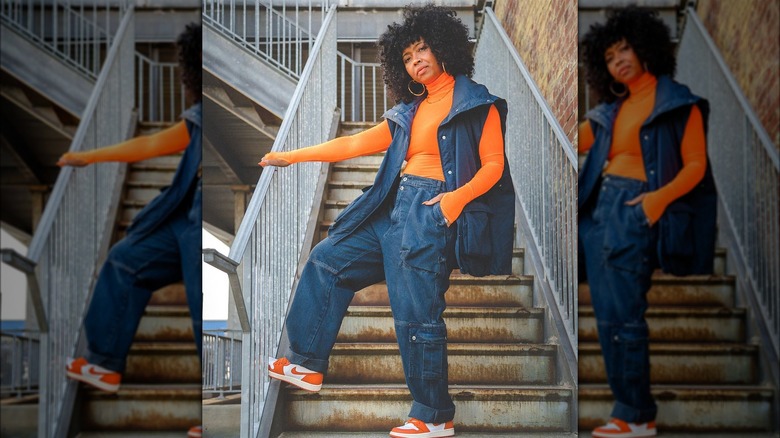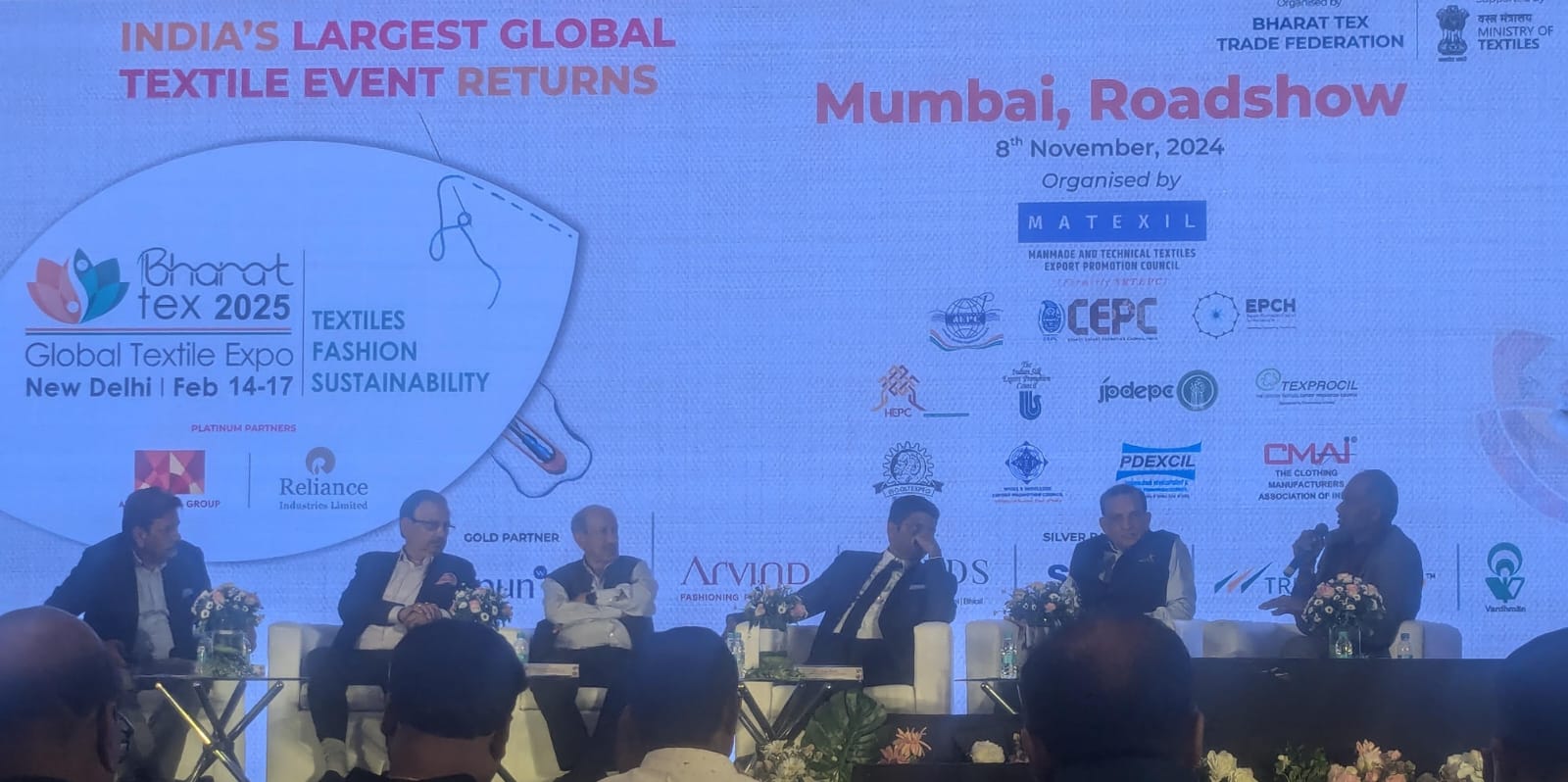FW
Just few days after Pakistani textile exporter, Ghazi Fabrics International announced a partial halt at its weaving unit, another company Janana De Malucho Textile Mills (JDMT) also suspended production, citing severe economic challenges, rising energy costs, and a lack of affordable, high-quality cotton.
The company notified the Pakistan Stock Exchange (PSX) of this decision in compliance with Sections 96 and 131 of the Securities Act, 2015, and Clause 5.6.1 (a) of the PSX Regulations. JDMT stated that it can no longer sustain production due to adverse economic conditions, escalating power costs, limited availability of quality cotton at reasonable prices, and decreasing sales. Additionally, it cited an accumulation of finished goods as the yarn market slows down.
Established in 1960 as a public company under the Companies Act, JDMT specialises in producing super-fine counts of 80s and 100s combed and carded yarn, using extra-long staple cotton sourced from the US and CIS countries. It also produces premium 40/s and 60/s combed yarn for air-jet looms. While the company has suspended production temporarily, management emphasised its commitment to monitor the situation and resume operations when conditions improve.
The cotton crisis in Pakistan is deepening, with data from the Pakistan Cotton Ginner’s Association (PCGA) revealing a significant decline in cotton arrivals. By Sep-end, total arrivals in the country declined by 59 per cent Y-o-Y to 2.04 million bales as against 5.025 million bales in the same period in 2023. This shortage is exacerbating challenges for the textile industry, a key sector in Pakistan's economy.
Expanding the Uyghur Forced Prevention Act (UFLPA) Entity List, US Department of Homeland Security (DHS) has added 78 companies from the People’s Republic of China including several textile manufacturers to it. This helpsthe department prevent import of goods produced through forced labor, specifically from companies associated with Uyghur labor in the Xinjiang region.
Among the listed companies include prominent textile firms such as Esquel Group, Guangdong Esquel Textile Co, and Turpan Esquel Textile Co. The new regulations empower the US Customs and Border Protection (CBP) to bar entry of products produced by these companies. Changji Esquel Textile Co also faces restrictions as it has been removed from Section One of the UFLPA list, effectively banning its goods from the U.S. market.
Alejandro N. Mayorkas, Secretary, DHS, emphasises, the list plays a pivotal role in helping American businesses maintain ethical supply chains and remain free from forced labor.Expansion of the list also enables American businesses better assess their supply chains and ensure they do not profit, directly or indirectly, from the use of forced labor, he adds.
Robert Silvers, Under Secretary-Policy and Chairman, Forced Labor Enforcement Task Force, affirms, the administration is committed to strengthening accountability across global supply chains.
Since its inception in December 2021, the UFLPA Entity List has grown to include companies across multiple industries, from agriculture to electronics, aiming to hold the PRC accountable for alleged human rights abuses and forced labor practices targeting Uyghurs and other minority groups in the Xinjiang Uyghur Autonomous Region (XUAR). The expansion of this list underscores the US stance against forced labor and its dedication to supporting Uyghurs and other affected groups in East Turkistan.
Vietnam’s cotton imports increased to $1.309 billion during Jan to May’24, as per the newly released ‘Vietnam Cotton Import Research Report 2024-2033’by ResearchAndMarkets.com.In In 2023, Vietnam recorded cotton imports worth $2.744 billion.
Currently, cotton production across the globe is dominated by China, the United States, India, Brazil, and Australia, with China, India, and the US being the most influential players in the cotton market. Highest demand for cotton is generated from the Asia and Western markets with demand in the emerging markets also being driven by economic development and increasing income levels.
Southeast Asia's fast-growing economy and the world’s second-largest textile exporter, Vietnam is heavily dependent on cotton imports due to limited domestic production, which fulfills only around 1 per cent of the country’s demand. The country is currently the world’s third-largest cotton importer, with import values in the billions annually. It mostly imports cotton from the United States, Australia, Brazil, China, and Singapore.
From 2021-24, Vietnam sourced most of its cotton fromthe US, Australian, and Brazilian exporters including Sunray Macao Commercial, Bros Macao Commercial Offshore And Louis Dreyfus Company Suisse SA.Some of the major Vietnamese cotton importers included Brotex (Vietnam) Co, Texhong Galaxy and Texhong Yinlong Technology.
With the continued growth of Vietnam’s textile industry, demand for high-quality, stable cotton supplies is expected to rise as Vietnam upgrades its textile production and expands internationally. The report forecasts an upward trend in cotton import volumes as the industry seeks to meet both domestic and international demand.

Miu Miu has dethroned Loewe to become the hottest brand in the world, according to the latest Lyst Index released recently. The quarterly ranking, which analyzes the online shopping behavior of millions of consumers, reveals the most sought-after brands and products across the globe.
Miu Miu's resurgence can be attributed to a 30 per cent quarter-on-quarter increase in searches for the brand, driven by its distinctive "alt-girl" aesthetic and popular items like the $3,050 Arcadie bag, which ranked as the fourth hottest product this quarter.
Miu Miu has consistently captured the zeitgeist with its playful and subversive designs, points out Lyst's Chief Insights Officer. "The brand's ability to connect with Gen Z and millennial consumers through social media and celebrity endorsements has been key to its success."
Loewe, which briefly held the top spot in Q2, slipped to second place, while Prada maintained its position in third. Saint Laurent and Alaïa rounded out the top five, with the latter making a significant leap of 12 places thanks to the enduring popularity of its fishnet ballet flats.
Table: Top 10 hottest brands
|
Rank |
Brand |
|
1 |
Miu Miu |
|
2 |
Loewe |
|
3 |
Prada |
|
4 |
Saint Laurent |
|
5 |
Alaïa |
|
6 |
Bottega Veneta |
|
7 |
Jacquemus |
|
8 |
Gucci |
|
9 |
The Row |
|
10 |
Valentino |
Alaïa's ascent
One of the most notable shifts in the Index is the rise of Alaïa, which jumped 12 places to claim the fifth spot. This surge in popularity is largely due to the creative direction of Pieter Mulier, who has revitalized the brand while honoring its heritage.
"Mulier's collections have struck a chord with consumers who appreciate the sensuality and craftsmanship of Alaïa," notes a fashion analyst at Lyst. "The brand's iconic fishnet ballet flats, which topped the hottest products list this quarter, have become a must-have item for fashion enthusiasts."
The Lyst Index also highlighted the growing influence of sportswear brands, with Nike and Adidas climbing the rankings. This trend is driven by the increasing popularity of athleisure and the blurring lines between sportswear and high fashion.
Sneaker wars heat up
The report also revealed the hottest products of the quarter, with Alaïa's fishnet ballet flats taking the top spot. However, sneakers made a strong showing, with Puma's Speedcat – seen on celebrities like Dua Lipa and Emily Ratajkowski – claiming third place following a 532 per cent spike in demand.
"The Speedcat's success demonstrates the power of celebrity endorsement and the enduring appeal of retro-inspired designs," notes Lubin. "It's a classic case of a heritage product being rediscovered and reinterpreted for a modern audience."
Other notable trends include the continued popularity of suede accessories, with Coach's Brooklyn shoulder bag and Miu Miu's Arcadie bag ranking second and fourth respectively.
Key trends
Retro revival: The Lyst Index highlights a growing interest in retro-inspired fashion, with items like Alaïa's fishnet flats and Coach's Brooklyn suede shoulder bag proving particularly popular.
Quiet luxury: Brands like The Row and Bottega Veneta, known for their understated elegance and high-quality materials, continue to resonate with consumers seeking timeless pieces.
Sportswear influence: Ralph Lauren's rise in the rankings reflects the ongoing influence of sportswear on luxury fashion.
As the fashion industry enters the final quarter of 2024, it remains to be seen whether Miu Miu can maintain its momentum. However, with its strong brand identity and innovative designs, the Italian fashion house is well-positioned for continued success.
At ITMA ASIA + CITME 2024, held in Shanghai amid challenging market conditions, Karl Mayer Group showcased innovations under its theme ‘Master the Change.’ The company highlighted solutions tailored to help textile businesses navigate industry shifts, drawing over 800 visitors, primarily from China, India, and Turkey.
Kong Zhen, General Manager of Karl Mayer (China), emphasized the positive response to the company’s exhibit, featuring cutting-edge textile machinery and digital solutions. Top attractions included the HKS 2-S tricot machine, producing fine E44-grade fabrics for sun protection apparel, and the CMS 503 ki L flat knitting machine, known for its productivity and pattern versatility, displayed through an intricate ladies scarf.
Digital tools Create Design and Create Plus, offered by KM.ON, impressed attendees by enhancing design efficiency for flat knitwear, while the new Warp direct warping machine drew interest for its high-speed, high-quality output and short amortization time.
Kong noted that discussions were especially in-depth, reflecting growing market optimism, partly spurred by recent government subsidies. These interactions resulted in several key contracts, extending beyond machinery sales to new product developments.
Karl Mayer remains committed to providing technology that enhances operational flexibility, sustainability, and profitability for its customers, reinforcing its industry leadership despite fluctuating market dynamics.
Source Fashion, Europe's prominent responsible sourcing event, has set new dates for its next edition, running from 18th–20th February 2025 at Olympia London. Following visitor feedback, the show will now take place mid-week to better align with industry needs.
Since its debut in February 2023, Source Fashion has seen impressive growth, with a 65 per cent annual visitor increase, providing a platform for brands and retailers to connect with ethically audited manufacturers worldwide.
The February event will broaden its offerings with expanded sectors including footwear, leather, and a heightened focus on UK manufacturers. Additionally, the show will reorganize its layout by product category such as Womenswear, Menswear, Footwear, Accessories, Source Luxury, and Technology & Servicesrather than by country.
Suzanne Ellingham, Director of Source Events at Hyve Group, noted that the shift to mid-week dates directly addresses visitor preferences and aligns with the increasing demand for sustainable sourcing options. She highlighted that the event's objective is to support brands in establishing responsible supply chains.
The event now ranks as Europe’s largest garment manufacturing showcase, with exhibitors from regions like Peru, Cambodia, Pakistan, and Italy, drawing high-profile visitors such as John Lewis, ASOS, and Harrods. Simon Platts, Co-Founder of Recomme, encouraged industry professionals to attend, highlighting the show’s commitment to responsible sourcing and its alignment with sustainability goals.
US-based children’s apparel retailer, the Children’s Place is teaming up with fast-growing Chinese-founded shopping app, Shein to sell the brand’s clothing on its platform. Currently, The Children’s Place storefront is accessible to US Shein customers with the brand planning a global rollout in phases.
This collaboration represents a notable shift for Shein, which typically focuses on its own brand’s affordable fashion and accessories from a worldwide vendor network. The new partnership with The Children’s Place also follows recent changes in US customs regulations; an executive order from President Biden has removed the tax exemption on imports worth less than $800 from China—a move that impacts many Shein shipments to the U.S.
Emphasing the value of this new partnership, Claudia Lima-Guinehut, Brand President, says, it is essential for the brand, providing exceptional value and trendy children’s apparel, to expand its omnichannel strategy. It’s partnership with Sheinenables it to offers customers convenience, value, and satisfaction.
The Children’s Place has faced financial challenges in recent years. In May 2024, Jane Elfers, CEO, who led the company since 2010, stepped down in a ‘mutual agreement.’ Earlier, in April 2024, the company secured a second loan from its majority shareholder, Mithaq Capital SPC, totaling $90 million. This follows $78.6 million in unsecured, interest-free funding received from Mithaq in February, bringing the total support to $168.6 million this year.
Expressing her enthusiasm over the collaboration, Jessica Liu, Vice President, Global Brand Operations, Shein, states, this partnership underscores the retailer’s commitment to offer a diverse selection of affordable, high-quality options. The e-commerce operator looks forward to integrating more renowned brands like The Children’s Place into the its shopping experience.
The Children’s Place operates as an omni-channel retailer, with two digital storefronts, over 500 stores across North America, wholesale distribution, and a global reach through franchise partners in 15 countries.
The Q2, FY25 revenues of Vardhman Textiles rose by 4.38 per cent Y-o-Y while its profit increased by 46.57 per cent Y-o-Y. On a Q-o-Q basis, the company noted an 8.4 per cent Q-o-Q rise in revenue while its profit declined by 17.47 per cent Q-o-Q.
The company’s Selling, General, and Administrative (SG&A) expenses increased by 3.55 per cent Q-o-Q and 11.17 per cent YoY, indicating Vardhman’s continued investment in operational capabilities and customer engagement initiatives. Its operating income declined by 14.15 per cent Q-o-Q but increased by 111.99 per cent Y-o-Y increase, highlighting the company's effective long-term strategies to boost profitability.
The company’s Earnings per Share (EPS) grew by 46.61 per cent Y-o-Y to Rs6.92 in Q2, FY25, signaling a strong trajectory of earnings growth and operational efficiency.
The Q2, FY25 net profit of leading textile player, Mafatlal Industries declined to Rs 20 crore ($2.4 million) as against Rs 21 crore profit registered in the corresponding quarter last year.
The company’s revenue for the quarter rose by 223 per cent to Rs 996 crore, as against Rs 309 crore in the corresponding quarter of the previous fiscal year.
With an order book of around Rs 1,200 crore, Mafatlal Industries currently supplies products to various clients in the textile and consumer durable segment from the governments of Maharashtra, Jharkhand and Tripura.
MB Raghunath, CEO, says, the company recorded a topline of Rs 996 crore during this quarter and Rs 1,447 crore in the first half of the year. It continues to explore opportunities within its supply chain network to broaden its horizons. In line with this strategy, it successfully executed large orders in the consumer durable goods space during the quarter.
A flagship company of the Arvind Mafatlal Group, Mafatlal Industries offers a wide range of products that include suitings, shirts, fabrics, voiles, uniforms, etc.
Transforming the industry, Finnish textile innovation company, Spinnova has introduced a sustainable alternative to cotton: a 100 per cent recyclable cellulose fiber. This new technology not only helps significantly reduce the industry’s environmental impactbut also lowers its dependence on cotton by providing a groundbreaking option for eco-friendly textiles.
After nearly a decade of research, Spinnova has pioneered a unique method of producing textile fiber from wood pulp or waste pulp through a mechanical, chemical-free process. This avoids harmful chemicals or dissolution, making it suitable for large-scale production, explained Shahriare Mahmood, Chief Product and Sustainability Officer, Spinnova at a seminar in Dhaka. The company aims to price the fiber competitively and target the organic cotton market segment, he added, emphasising it could eventually substitute cotton, whose production has declined amid climate challenges even as demand rises.
Spinnova's innovation has attracted the interest of the denim industry, with Bangladeshi textile mill NZ Denim incorporating the fiber into its denim production over the past two and a half years. A challenging application, denim requires specific aesthetics, and the Spinnova fiber has proven to be a suitable replacement, retaining the look and feel of natural fibers like cotton and linen, Mahmood highlighted.
The fiber offers absorption properties similar to natural cellulosic fibers and can be blended with other materials. It also boasts higher thermal resistance than cotton, as verified by lab tests. Notably, global sportswear brand Adidas recently launched hoodies using Spinnova fibers, further validating its potential in high-performance textiles.
Lasse Holopainen, Chief Revenue Officer, Spinnova, noted, the minimum production capacity for a Spinnova fiber plant is at least 50 tons per day, which provides ample opportunity for its large-scale adoption. Given Bangladesh’s position as the second-largest apparel exporter, it is ideally positioned to adopt Spinnova’s technology as brands increase their focus on recycled and eco-friendly materials.
Organised by SAS Enterprise in collaboration with Spinnova, the Dhaka seminar focused on exploring sustainable textile solutions. Mahmood presented Spinnova’s fiber production process, which uses Kraft pulp and a dry spinning technique, requiring no water or chemicals.
In his welcome speech, Rajibul Huq Chowdhury, Managing Director, Aziz Group, emphasised the significance of sustainable practices for the textile sector’s future. A Matin Chowdhury, Managing Director, New Asia Group, underscored the need for innovative solutions to meet global demand sustainably.
During a panel discussion moderated by Ayub Nabi Khan, Pro-Vice-Chancellor, BGMEA University of Fashion & Technology, Saleudh Zaman Khan, Managing Director, NZ Tex Group, discussed the practical applications of sustainable fibers in Bangladesh, highlighting the prospects and challenges in the country's textile sector.












